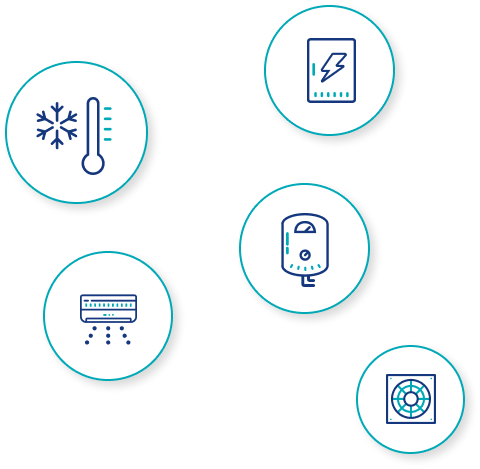Massachusetts Rebates & Incentives
Join GEM in making Massachusetts homes greener and more energy-efficient, all while saving money through rebate and incentive programs.
Mass Save® Rebates
We are a proud Mass Save® HPIN contractor.
Learn how GEM can help you save money on energy efficient upgrades to your home through Mass Save rebate programs.
Energy Saving Services

Heat Pumps
Ductless HVAC
Heat Pump Water Heaters

The Rebate Process
Watch our short video to understand the rebate process.
Have additional questions?
Ready to get started?
It all starts with a phone call
Federal Tax Incentives
Inflation Reduction Act — 25C
The federal Inflation Reduction Act (IRA) includes the 25C tax credit, also known as the Energy Efficient Home Improvement Tax Credit. There are many parts to the IRA, but the heat pump tax credit is one of the best.
Frequently Asked Questions
What are energy-efficient rebate and incentive programs?
These programs are initiatives offered by government agencies, utility companies, or other organizations to encourage individuals, businesses, and property owners to invest in energy-efficient upgrades or measures. They typically provide financial incentives or rebates to offset the cost of purchasing and installing energy-efficient equipment or making energy-saving improvements.
What is the difference between a rebate, an incentive, and a tax credit?
Rebates are essentially refunds or discounts offered by utility companies or government agencies to consumers who purchase energy-efficient products or make energy-saving upgrades. These upgrades could include installing energy-efficient appliances, upgrading insulation, or replacing old HVAC systems with more efficient ones like heat pump technology.
Incentives are broader in scope and aim to encourage certain behaviors or actions that lead to increased energy efficiency. Unlike rebates, incentives may not always involve a direct monetary benefit at the point of purchase. Instead, they can take various forms, such as tax credits, grants, or utility rate discounts.
A tax credit directly reduces the amount of income tax you owe, dollar for dollar. When filing your annual tax return, you claim this credit.
Who offers these programs?
Energy-efficient rebate and incentive programs are offered by various entities, including government agencies at the federal, state, and local levels, as well as utility companies, non-profit organizations, and sometimes private businesses.
How much money can I expect to receive through rebates or incentives?
Rebate amounts vary depending on the program, the type of upgrade, and other factors. In some cases, rebates may cover a percentage of the total cost, while in others, they may be a fixed amount per unit installed.
